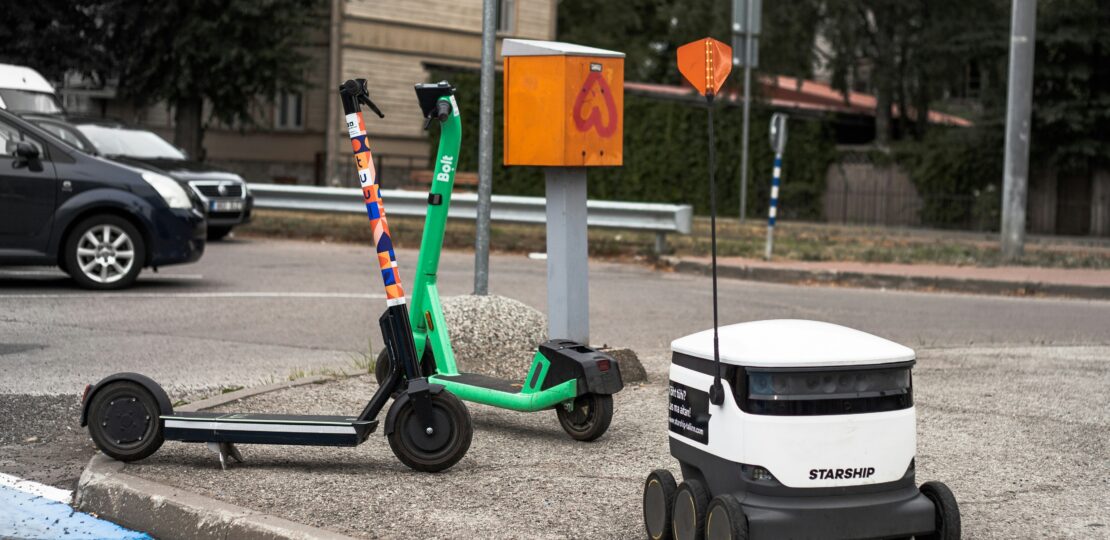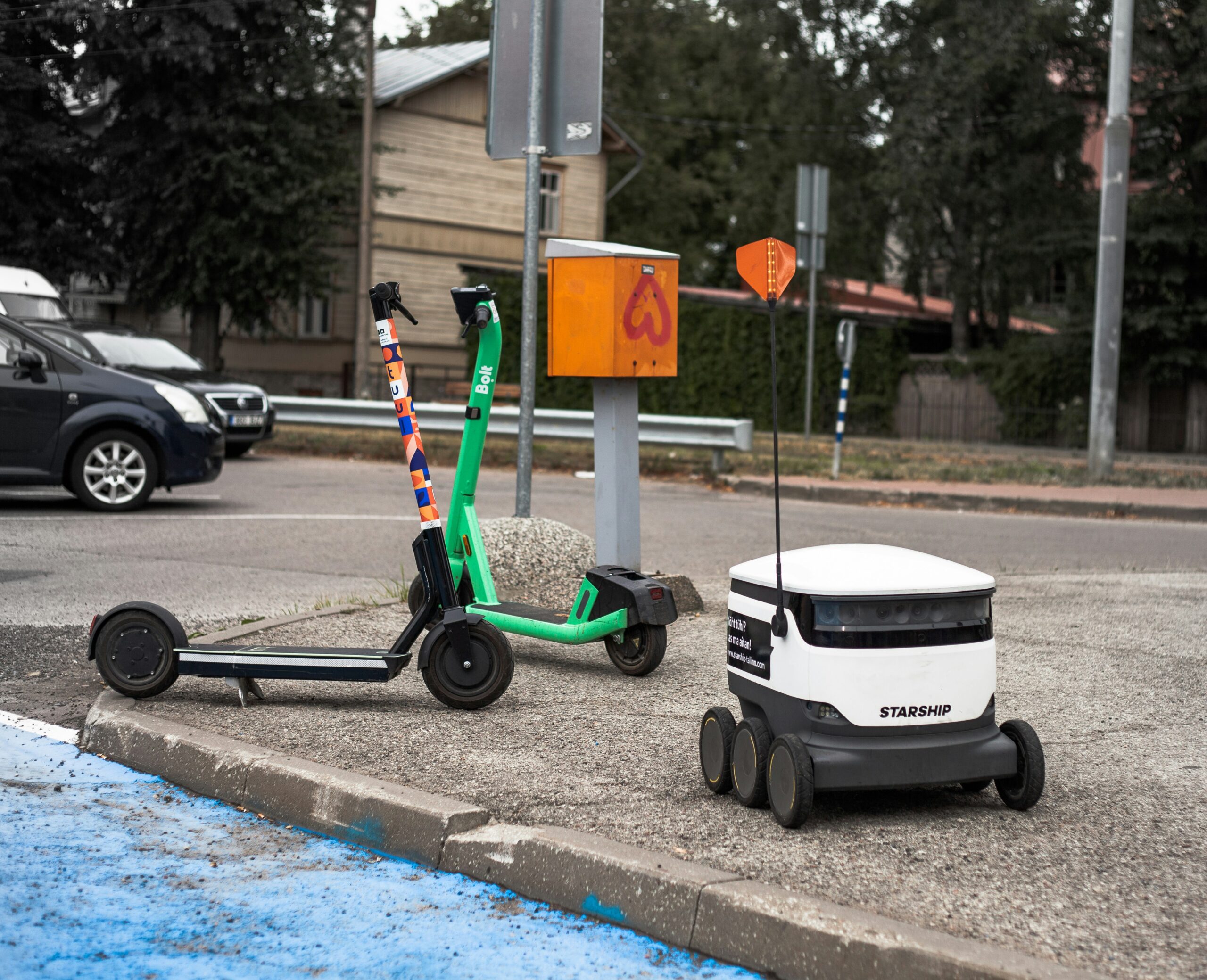Eco-Conscious Last-Mile Delivery Innovations: Paving the Way for Sustainable E-Commerce
October 2, 2025 | by qqvmedia.com


The Importance of Sustainable Last-Mile Delivery
The challenge of last-mile delivery has emerged as one of the most pressing issues in urban logistics. As e-commerce continues to flourish, driven largely by consumer expectations for quicker delivery times, traditional delivery methods have faced significant scrutiny regarding their environmental implications. Last-mile delivery, the final step in the shipping process, can account for up to 30% of a package’s total carbon footprint. This figure highlights the urgency of developing sustainable practices to mitigate rising emissions linked to increased delivery frequency.
Moreover, the rapid growth of online shopping has exacerbated the effects of last-mile logistics on urban environments, contributing to congestion, noise pollution, and significant greenhouse gas emissions. According to recent studies, emissions from last-mile delivery are projected to increase by over 20% by 2030, largely due to the surge in urban deliveries and the prevalence of inefficient shipping practices. These staggering statistics underscore the necessity for a paradigm shift toward eco-conscious delivery solutions in the e-commerce sector.
The increasing consumer demand for environmentally friendly practices fuels the importance of sustainable last-mile delivery. Many consumers now actively seek brands that prioritize eco-friendly initiatives, reflecting a broader shift towards sustainability in purchasing decisions. Companies that integrate eco-conscious shipping strategies not only align with consumer preferences but also gain competitive advantages in a crowded market. For instance, options such as electric delivery vehicles, bicycle couriers, and optimized routing software can significantly decrease overall emissions while enhancing the efficiency of delivery operations.
In light of this growing awareness, it is essential for stakeholders within the e-commerce and logistics sectors to prioritize sustainable last-mile delivery options. Embracing eco-conscious innovations can lead to reduced environmental impacts, promoting a healthier urban landscape, and fostering a more responsible approach to consumerism.
Innovative Solutions: Bike Couriers and Electric Vehicles
The need for sustainable last-mile delivery solutions has become increasingly urgent as e-commerce continues to thrive. Among the most promising innovations in this arena are bike couriers and electric vehicles (EVs), both of which present environmentally friendly alternatives to traditional delivery trucks. Utilizing bicycles and electric vans not only contributes to reduced carbon emissions but also enhances urban mobility by alleviating traffic congestion.
Bike couriers, in particular, have gained traction in densely populated urban areas where traditional vehicles struggle to navigate. The agility of bicycles allows for quicker deliveries, often outperforming larger vehicles in terms of speed in inner-city environments. Studies have shown that bike delivery services can reduce overall delivery times significantly, thus improving customer satisfaction. Furthermore, using bicycles eliminates fossil fuel dependency, making it a completely emissions-free mode of transport.
Electric vehicles, on the other hand, offer an excellent compromise for deliveries over longer distances or in areas where bicycles may not be practical. EVs produce significantly fewer emissions compared to conventional gasoline-powered trucks while maintaining the capacity for bulk deliveries. The rise of dedicated EV fleets has enabled companies to implement greener practices across their logistics chains without sacrificing efficiency.
Several companies have set compelling precedents in their use of these methods. For instance, companies like Deliveroo and UPS have successfully launched bike courier programs, seeing measurable improvements in both their operational efficiency and the environmental metrics of their delivery processes. Similarly, large retailers like Amazon are increasingly transitioning to electric delivery vehicles, aiming for net-zero carbon emissions across their logistics operations in the coming years.
While the implementation of bike couriers and electric vehicles comes with some operational challenges, such as the need for charging infrastructure and managing varied traffic conditions, the overall benefits to the environment and customer experience are proving to be worthwhile. As these innovative solutions continue to evolve, they pave the way for a more sustainable future in e-commerce delivery.
Drones: Revolutionizing Urban Delivery
The advent of drone technology has opened new horizons in the realm of last-mile delivery, promising significant enhancements to the efficiency of urban logistics. As cities continue to grapple with traffic congestion and increasing delivery demands, drones offer a viable solution by circumventing road networks and delivering packages directly to consumers. Utilizing vertical take-off and landing capabilities, drones can navigate through urban landscapes with minimal obstruction, drastically reducing delivery times. With the capacity to quickly transport goods over short distances, drones can enhance the responsiveness of e-commerce platforms and improve customer satisfaction by ensuring prompt deliveries.
Furthermore, the environmental implications of drone deliveries cannot be overstated. By eliminating the need for delivery vans, drones can substantially decrease the carbon footprint associated with last-mile logistics. Traditional delivery vehicles contribute not only to traffic congestion but also to greenhouse gas emissions. Drones, particularly those powered by electric propulsion systems, present an eco-conscious alternative that can help to mitigate these issues. As urban areas continue to seek sustainable solutions, integrating drones into delivery networks represents an innovative response to the dual challenges of logistics efficiency and environmental responsibility.
However, the implementation of drone delivery systems is not without its challenges. Regulatory frameworks must evolve to account for the unique requirements of operating unmanned aerial vehicles. Authorities are required to establish clear guidelines regarding air traffic management, safety protocols, and privacy concerns. Additionally, public perception and acceptance of drones for delivery are crucial for successful adoption. Demonstration projects and pilot programs in various cities are currently examining these factors, allowing stakeholders to gather insights and refine approaches. By addressing regulatory hurdles and implementing safety measures, the potential for drones to significantly transform last-mile delivery in urban environments is very promising. In conclusion, the integration of drones into urban logistics holds transformative potential for enhancing sustainability and operational efficiency within the e-commerce sector.
Consolidated Drop-Off Points: A Smart Solution for Urban Areas
In contemporary urban settings, the rise of e-commerce has resulted in increased traffic congestion and heightened emissions due to the proliferation of delivery vehicles. One effective strategy to mitigate these challenges is the implementation of consolidated drop-off points. These designated locations serve as collective hubs for the delivery of packages, allowing multiple orders to be dropped off in a single trip rather than requiring individual deliveries to each customer’s home.
Consolidated drop-off points function by enabling consumers to select a nearby location for package retrieval during the online purchasing process. Upon delivery, drivers deposit packages at the drop-off site rather than making individual stops. This not only optimizes delivery routes, thereby reducing the number of vehicles on the road but also enhances overall operational efficiency for delivery services. The result is a significant reduction in carbon emissions and a lessening of traffic congestion in urban areas, ultimately promoting a more sustainable model for last-mile delivery.
Numerous case studies illustrate the successful application of consolidated drop-off points. For instance, cities like Amsterdam and London have pioneered innovative initiatives that integrate these hubs into their urban infrastructure. Various retailers and courier services have collaborated with local governments to set up easily accessible drop-off locations in high-traffic areas. These initiatives have proven beneficial, with increased consumer engagement and positive feedback regarding the convenience and environmental advantages of utilizing such facilities.
Furthermore, consumer attitudes toward consolidated drop-off points are becoming progressively favorable. Surveys indicate that urban consumers appreciate the reduced delivery fees associated with these options and show a strong willingness to adopt practices that support sustainability. This shift in consumer behavior plays a vital role in fostering a culture of eco-consciousness within the e-commerce landscape, highlighting that convenience and sustainability can coexist in today’s urban environments.
RELATED POSTS
View all


